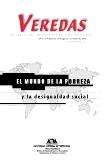Herencia autoritaria y límites en la autonomía de las instituciones electorales
El caso del Instituto Federal Electoral
Keywords:
autonomy, electoral institutions, democracy.Abstract
The construction of autonomous electoral institutions in Mexico is the result of a political negotiation process with the explicit objective of ending or at least limit the long tradition of government manipulation and control of voting and lack of confidence of society in the elections. Autonomy is a relational concept that is defined from an internal dimension associated with institutional coherence to fulfill its mission and external related to its independence from the actors and groups in power. I n the case of the Federal Electoral Institute, autonomy in its external dimensions refers to its independence from government ant political parties. Electoral reforms undertaken since its inception in 1990 have been relatively successful in conjunction with the empowerment of the executive, however, the power that political parties have claimed under the same electoral reforms have made them a sort of council shareholders with large capacity pressure on institutional life. Thus, electoral reforms that yield a paradoxical result is the creation of an institution responsible for organizing elections with growing powers facing powerful corporations converted party election and willing to transgress or circumvent the regulations based on their interests





